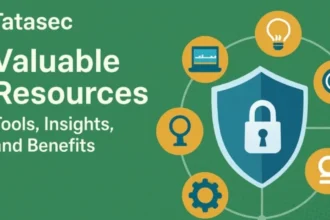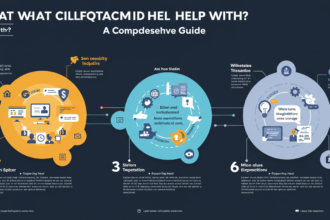I never liked how much the internet tracks us. You search for something once and suddenly every site shows you ads for it. Even when you’re not logged in, websites seem to know who you are.
- What Is a Proxy Tunnel?
- How Proxies Protect Your Identity
- Limitations and What Proxies Can’t Do
- They Don’t Encrypt Your Data
- They Won’t Block Malware
- Logged-In Accounts Still Track You
- No Phishing Warnings
- Free Proxies Can Be Risky
- Choosing the Right Proxy for Privacy
- Real-World Applications: Who Uses Proxies to Stay Hidden?
- Final Thoughts
After a while I wanted more control over what I share and who sees it. Not extreme – just a bit more privacy. That’s when I started using proxies.
They’re easy to set up and do more than most people think. If you want to stop feeling like you’re being watched every time you go online, they’re worth checking out.
What Is a Proxy Tunnel?
Think of it like a buffer between you and the internet. Instead of your device talking directly to a website, the proxy server does the talking for you.
It’s like asking a friend to make a call on your behalf. The person on the other end gets the message, but they don’t know it came from you.
When you use a proxy, your real IP address, basically your digital “home address,” isn’t exposed. BestProxy is a fantastic privacy-focused provider that offers residential and ISP IPs with no-logs policies and HTTPS/SOCKS5 support, making it simple to add a proxy “buffer” without sacrificing stability.
How Proxies Protect Your Identity
Here’s the thing: most websites collect more than you think. It’s not just what page you clicked, it’s your IP, your device, what browser you’re using, even how fast you scroll.
When you use a proxy, it blocks a big chunk of that puzzle, your IP. Without it, websites have a harder time connecting the dots between you and your behavior.
I’ve noticed fewer ads and less “we know who you are” feelings when I’m browsing with a proxy. It’s not full privacy, but it’s a good step.
Limitations and What Proxies Can’t Do
Proxies help with privacy but they don’t cover everything. Here’s where they fall short:
They Don’t Encrypt Your Data
If you’re on public Wi-Fi, a proxy won’t stop others from seeing your traffic. You’ll still need HTTPS or a VPN for that kind of protection.
They Won’t Block Malware
Clicking on a bad link or downloading a risky file? A proxy won’t stop it. You still need antivirus tools for safety.
Logged-In Accounts Still Track You
Once you sign in to sites like Google or Facebook, they know it’s you, proxy or not.
No Phishing Warnings
Proxies don’t tell you if a site is fake or trying to scam you. That part’s still on you.
Free Proxies Can Be Risky
Many free services track what you do, show you ads or leak your IP. If privacy matters, paid options are the safer choice.
Choosing the Right Proxy for Privacy
Not all proxies are created equal. Some are for speed. Others are for scraping. But if privacy is your focus, a few things matter more than others.
First, find a provider that says they don’t log your activity. If they do, that kind of defeats the purpose.
Next, go for residential or ISP IPs. These look like real users and are less likely to get flagged. Datacenter proxies can work, but they’re easier for sites to detect.
Also, check if the service supports encryption, at least HTTPS-level protection. That’s a big plus if you’re on shared or public networks.
For what it’s worth, I’ve had a good experience with ProxyWing.com. They’re not flashy, but they focus on privacy and have a good track record.
Real-World Applications: Who Uses Proxies to Stay Hidden?
If you want privacy here’s what to look for in a proxy:
- No logs
They don’t store your browsing or IP history. If they do, you’re not private. - Residential or ISP IPs
These look like real people and are less likely to get blocked. Datacenter IPs work too but are easier to detect. - Encryption
Services that offer HTTPS level encryption are safer, especially on public Wi-Fi or shared networks. - Proven track record
I’ve tried a few and ProxyWing.com stood out. Simple, reliable and focused on privacy without extra junk.
Final Thoughts
You never used a proxy before? It’s one of those “techy” things you don’t really need. But once you try it, you’ll realize how exposed you were without it.
It’s not a full privacy shield and won’t solve every online issue. But it’s a smart, low-effort way to keep your IP and browsing habits from being grabbed and used without your consent. If you ever feel ready to take your protection to the next level, ProxyCC is a powerful option. Their clean, stable residential and ISP networks are built for privacy-first users who want stronger anonymity without complicated setups. It’s one of those rare services that feels both professional and genuinely user-friendly.

















